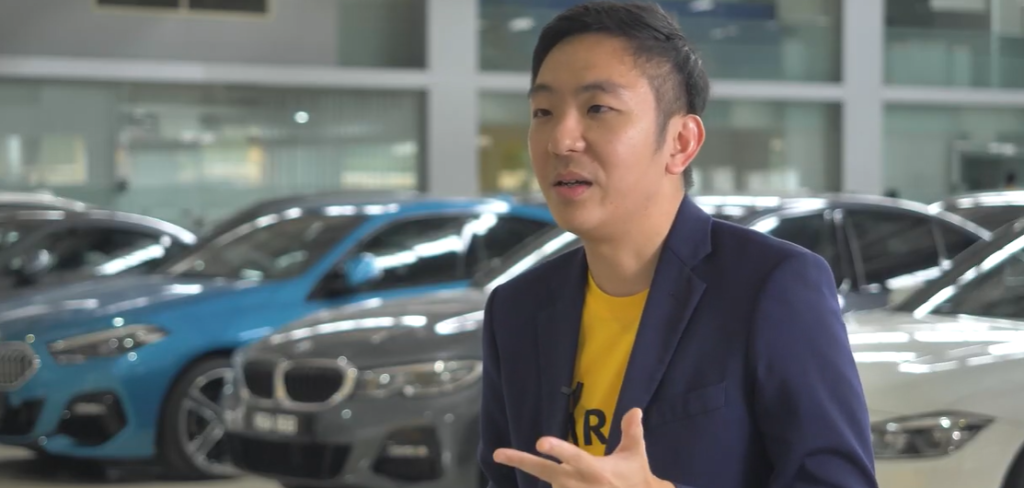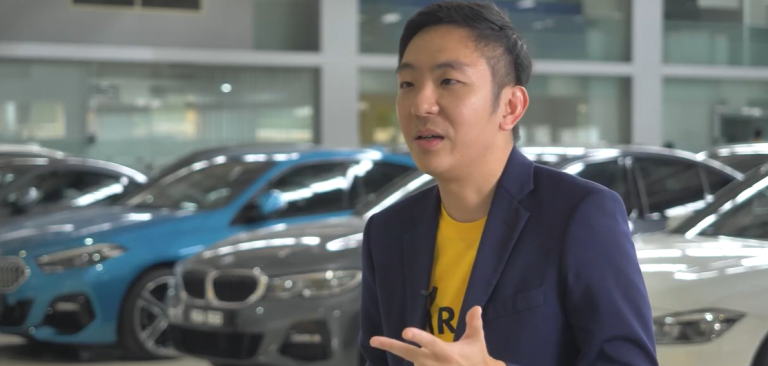Eric Cheng – Personal and Career Information
| Full Name | Eric Cheng |
|---|---|
| Nationality | Singaporean |
| Known For | Founder of Sevens Group, Co-founder of Carsome |
| Estimated Net Worth | $60–$75 million (2025 estimate) |
| Major Ventures | Carsome, Sevens Group, FX Trade Financial, BitTrade |
| Industries | Real Estate, Automotive E-Commerce, Crypto |
| Famous Move | First foreigner to own a Japanese crypto exchange |
| Residence | Singapore |
| Career Start | Real estate agent, later transitioned into tech and blockchain |
| Notable Assets Sold | Rolls-Royces, Ferrari, Lamborghini, $multi-million home |
| Key Media Features | Tatler Asia, Tech in Asia, The CEO Magazine |
| Source | Tatler Asia |
Eric Cheng’s current net worth is a clear illustration of how audacious choices combined with vision can produce outstanding financial results. Cheng’s fortune, estimated to be between $60 and $75 million in 2025, was created by boldly accepting risk, frequently when others remained motionless. Cheng has established a business legacy that is incredibly transparent and strategically layered, ranging from selling personal luxury assets to breaking into the tech and cryptocurrency sectors.
Cheng, who was first well-known for his real estate success with Sevens Group, made headlines when he sold a portion of the company to a Singapore-listed business for S$30 million. He was able to change course thanks to that liquidity event, first entering the automotive technology space with Carsome and then entering the more unstable cryptocurrency space. His trajectory notably reflects a trend seen among emerging tech elites in Southeast Asia who aren’t hesitant to invest their established funds in new ventures.
Cheng and Teoh Jiun Ee co-founded Carsome in 2015 as a result of Cheng’s personal discontent with Malaysia’s ineffective used car buying and selling system. By combining financing, transfers, deliveries, and inspections into a single platform, Cheng provided a very effective substitute that grew incredibly quickly. The business started out small, with just one inspection center, but after a $200 million share swap with iCar Asia, it became a unicorn in just six years.
Cheng’s financial situation benefited greatly from this expansion, but perhaps more importantly, it made him a respected player in Southeast Asia’s startup scene. His ability to identify structural flaws in common markets and then turn them into scalable solutions demonstrates an extraordinarily adaptable and progressive mindset. The ongoing expansion of Carsome in Thailand, Singapore, and Indonesia only serves to increase the value of Cheng’s personal holdings.
The most notable development in Cheng’s financial history, however, occurred in 2018 when he decided to sell off his opulent holdings in order to pursue a risky cryptocurrency acquisition. He raised $50 million to buy Japan’s FX Trade Financial and BitTrade by selling two Rolls-Royces, a Ferrari, a Lamborghini, a Porsche, and even his multimillion-dollar house. Given the hazy regulatory landscape and ebb and flow of trust in digital currencies at the time, it was a bold move.
He became the first foreigner to fully own a Japanese cryptocurrency exchange when he acquired BitTrade, in addition to increasing his equity holdings. Despite its technical significance, that milestone had symbolic significance. It proved that Cheng was integrating himself into the cryptocurrency’s infrastructure rather than just playing around with it. He placed himself at the center of trading mechanics, token liquidity, and transaction flow by assuming complete control of an exchange. Such vertical moves have proven to be much faster at scaling long-term returns in recent years.
It’s important to note that Cheng’s actions are motivated by an active, strategic reinvestment philosophy rather than being purely reactive. His actions reveal a propensity to place large bets on trends he supports, frequently sacrificing his own comfort in the hopes of making enormous profits. Similar actions by tech titans like Elon Musk, who infamously sold all of his homes to fully invest in Tesla and SpaceX, are echoed by this type of reinvestment philosophy. A similar entrepreneurial temperament that values vision over possession is indicated by Cheng’s similar decisions.

Cheng also displays a different side of himself in recent advertisements for companies like MSI: the executive of the digital age. He often talks about working while on the go and values portable, high-performing technology. These observations might appear superficial, but they highlight the characteristics of modern entrepreneurship: quick decision-making, constant motion, and a smooth fusion of leadership and technology.
Additionally, Cheng’s rise reflects larger regional dynamics. Once thought of as a dispersed consumer base, Southeast Asia is quickly developing into a unified digital economy. By creating platforms that transcend borders, handle regulatory complexities, and provide genuine value in historically inefficient markets, entrepreneurs like Cheng are profiting from this change. Carsome’s success isn’t unique; it’s a part of a significantly better ecosystem where innovators and investors are at last on the same page.
According to financial analysts, Cheng’s net worth could easily surpass $100 million if Carsome were to go public or undergo another big merger. This forecast is based on Carsome’s proven scalability, the rising demand for used cars, and Cheng’s track record of navigating challenging market conditions. It is not mere wishful thinking. These abilities have grown in value over the last ten years, especially among investors seeking founders who can succeed in the face of uncertainty.
Through the integration of cutting-edge technologies, the transformation of stagnant industries, and cross-sector diversification, Cheng has established a reputation that is far more valuable than money. Young Southeast Asian businesspeople are now studying his actions, and many of them view him as a role model for brave leadership in addition to being a successful businessman. He frequently reaffirms that, with perseverance and foresight, no risk is too big.


